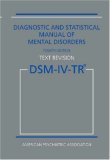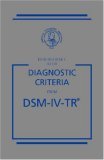| iPsychology
|
|
Axis II Personality Disorders and Mental Retardation are recorded so the clinician will give consideration to additional intervention and treatment choices. Personality is the qualities and traits of being a specific and unique individual. It is the enduring pattern of our thoughts, feelings, and behaviors, it is how we think, love, feel, make decisions and take actions. Personality is determined, in part, by out genetics and also, by out environment. It is the determining factor in how we live our lives. Individuals with Personality Disorders have more difficulty in every aspect of their lives. Their individual personality traits reflect ingrained, inflexible, and maladaptive patterns of behaviors that cause discomfort, distress and impair the indivdiual's ability to function in the daily activities of living. In Mental Retardation problems in brain development have usually occurred and virtually will affect all aspects of the indivdiual's cognitive functioning. Borderline Intellectual Functioning, as well as Learning Disabilities, may also be a consideration for clinical focus. Report all Personality Disorders and Mental Retardation.
Personality Disorders / Mental Retardation General diagnostic criteria is an enduring pattern of inner experience and behavior that deviates markedly from the expectations of the individual's culture. This pattern is manifested in two (or more) of the following areas: cognition (i.e., ways of perceiving and interpreting self, other people, and events); affectivity (i.e., the range, intensity, lability, and inappropriateness of emotional response); interpersonal functioning; and impulse control. The enduring pattern is inflexible and pervasive across a broad range of personal and social situations. The individual's pattern is stable of long duration and its onset can be traced back at least to adolescence or early adulthood.
 . . . . |
